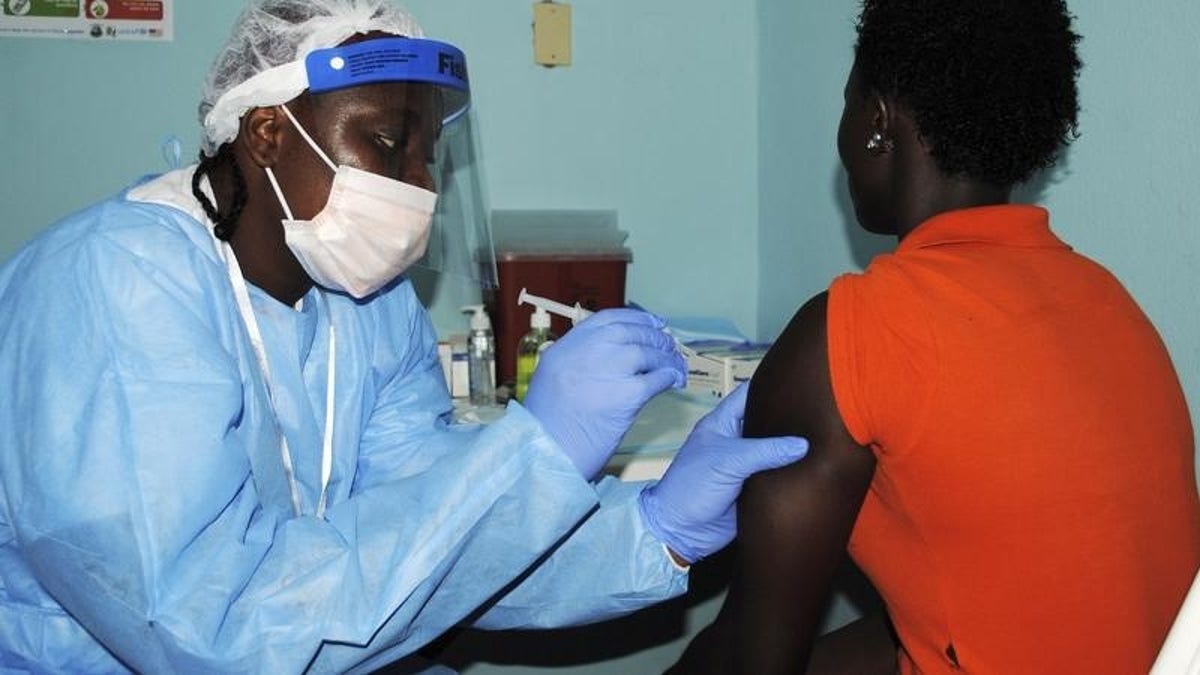
Health worker injects a woman with an Ebola vaccine during a trial in Monrovia (Copyright Reuters 2016)
LONDON – A study of a cluster of Ebola cases that appeared in Liberia last year, months after the country was declared Ebola-free, has found that the virus re-emerged after lying dormant in a female survivor.
The results suggest Liberia and the other African countries at the center of the outbreak should maintain high levels of vigilance for longer than thought to contain any future flare-ups of the deadly haemorrhagic fever.
The analysis, by an international team of scientists who looked at genetic data from samples taken directly from infected patients, was not able to establish how the virus was spread by the woman or which bodily fluids may have been involved.
World Health Organization data show West Africa's Ebola epidemic killed more than 11,300 people and infected some 28,600 as it swept through Guinea, Sierra Leone and Liberia from 2013 in the world's worst outbreak of the disease.
Each of the three countries has experienced brief flare-ups since being declared Ebola free, including three isolated clusters of Ebola cases in Liberia.
The second flare-up, which included seven confirmed cases, centered on a village in Margibi County, a rural area near the capital Monrovia. To find out more about what triggered it, researchers led by David Blackley of the U.S. Centres for Diseases Prevention and Control isolated and sequenced viral genomes from infected patients.
They found a striking amount of genetic similarity with other Ebola sequences from West Africa, indicating the flare-up "was a continuation of the outbreak that began in 2013, and was not caused by an additional spillover event from an unknown, non-human reservoir".
Further analysis suggested this cluster was sparked by "a persistent, sub-clinical infection" in a woman who had previously had Ebola infection with clear symptoms, but and appeared to recover.
"It remains unclear ... how Ebola virus is able to lay dormant in an infected host, but ... the virus may replicate more slowly and persist in immune-privileged sites, such as the eye and testes, long after the acute, symptomatic phase of disease has occurred," the researchers wrote.
Ben Neuman, a virologist at Britain's Reading University, said the study was "a solid piece of molecular epidemiology detective work".
Derek Gatherer, an Ebola expert at Lancaster University said it showed that the potential for the virus to become dormant in survivors and then be transmitted to others "may be a rare but important factor in prolonging outbreaks".
Any small resurgences of Ebola infection "could seed a fresh widespread epidemic", requiring intense public health efforts to contain and understand them, he added.








































